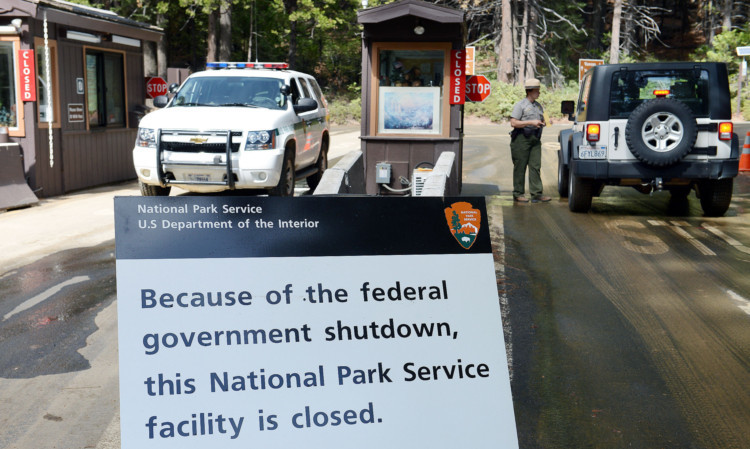US president Barack Obama has conferred with congressional leaders at the White House for the first time since a partial government shutdown began, but there were no signs of progress toward ending an impasse that has idled hundreds of thousands of federal workers and curbed federal services around the country.
Funding for much of the government was cut off on Tuesday after a Republican effort to thwart the health care law stalled the short-term, normally routine spending bill.
Mr Obama “refuses to negotiate”, House of Representatives Speaker John Boehner told reporters after private talks that lasted more than an hour.
“All we’re asking for here is a discussion and fairness for the American people under Obamacare,” he said, referring to the nation’s new health care law, the key legislative achievement of Mr Obama’s first term as president.
But Senate Majority Leader Harry Reid said, “We’re locked in tight on Obamacare” and neither the president nor Democrats in Congress will accept changes in that health care law as the price for spending legislation needed to reopen the government.
Public anger mounted as the partial shutdown closed iconic national park monuments and forced 800,000 employees, nearly a third of the federal workforce, off the job. People classified as essential employees – such as air traffic controllers, Border Patrol agents and most food inspectors – continued to work.
The shutdown forced Mr Obama to cancel two stops in his long-planned trip to Asia and disrupted government services across the country. It even idled many employees of the nation’s intelligence services.
With the nation’s ability to borrow money soon to lapse, Republicans and Democrats alike said the shutdown could last for two weeks or more, obliging a divided government to grapple with both issues at the same time.
The Republican-controlled House approved legislation to reopen the nation’s parks and the National Institutes of Health, even though many Democrats criticised them as part of a piecemeal approach that fell far short of what was needed. The bills face dim prospects in the Senate, and the White House threatened to veto both in the unlikely event they make it to Mr Obama’s desk.
“What we’re trying to do is to get the government open as quickly as possible,” said the House Majority Leader Eric Cantor. “And all that it would take is us realising we have a lot in agreement.”
The stock market ended lower as Wall Street CEOs, Europe’s central banker and traders pressed for a solution before serious damage is done to the economy. Chief executives from the nation’s biggest financial firms met Mr Obama for more than an hour yesterday, some of them plainly frustrated with the tactics at play in Congress and with the potential showdown coming over the debt limit.
“You can relitigate these policy issues in a political forum, but we shouldn’t use threats of causing the US to fail on its obligations to repay its debt as a cudgel,” Lloyd Blankfein, CEO of Goldman Sachs, said after the meeting.
In an interview with CNBC before meeting with lawmakers, Mr Obama said he would not negotiate with Republicans until the government is reopened and Congress votes to raise the debt limit.
“If we get in the habit where a few folks, an extremist wing of one party, whether it’s Democrat or Republican, are allowed to extort concessions based on a threat (to) undermine the full faith and credit of the United States, then any president who comes after me, not just me, will find themselves unable to govern effectively,” he said.
Congress has passed more than 100 temporary funding bills since the last shutdown in 1996, almost all of them without controversy. The streak was broken because conservative Republicans have held up the current measure in the longshot hope of derailing or delaying Obamacare, just as the health insurance markets at the heart of the law opened on Tuesday.
